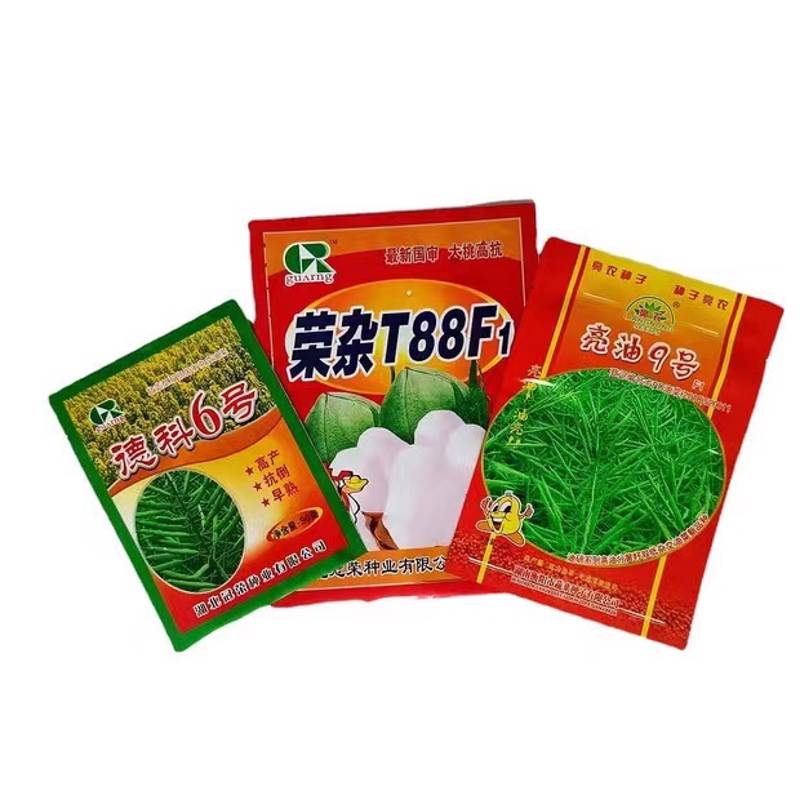Agricultural product packaging bag
The type of agricultural product packaging bag used will depend on the specific product being packaged, as well as the intended use and requirements. Some common types of agricultural product packaging bags include:
Additional information
| color | custom |
|---|---|
| size | custom |
| description | Agricultural packaging bag |
| valve | Can be added when requested |
| stock | NO |
Product details
Agricultural product packaging bags are used to package and transport a wide range of agricultural products, including grains, seeds, fruits, vegetables, and animal feed. These bags are designed to provide protection and preservation for the contents during storage and transportation, while also facilitating easy handling and transportation.
The type of agricultural product packaging bag used will depend on the specific product being packaged, as well as the intended use and requirements. Some common types of agricultural product packaging bags include:
- Woven Polypropylene Bags: These bags are made from a strong, durable woven material that is resistant to tearing and puncturing. They are commonly used for packaging grains, seeds, and animal feed.
- Mesh Bags: These bags are made from a breathable mesh material that allows air to circulate around the contents, making them ideal for packaging fruits and vegetables.
- Paper Bags: These bags are made from a strong, tear-resistant paper material that is often used for packaging seeds, grains, and animal feed.
- Bulk Bags: These bags, also known as FIBCs (Flexible Intermediate Bulk Containers), are large, flexible bags that can hold up to several thousand pounds of product. They are commonly used for packaging bulk commodities such as grains and animal feed.
In addition to the type of bag used, agricultural product packaging may also require additional features such as moisture and UV protection, anti-static properties, and tamper-evident seals, depending on the specific product and application.
Which flexible bag types is popular for seeds packaging?
There are several types of flexible bags that are popular for seed packaging due to their excellent barrier properties and ability to keep the contents fresh and protected. Here are some of the most common flexible bag types used for seed packaging:
- Woven polypropylene bags: These bags are made from a strong and durable woven material that provides excellent puncture resistance and tear strength. Woven polypropylene bags are commonly used for packaging seeds such as corn, wheat, soybeans, and other small grains.
- Multi-layer laminated bags: These bags are made from a combination of materials such as aluminum foil, polyethylene, and polyester. The multiple layers provide excellent barrier properties against moisture, oxygen, and light, making them ideal for packaging sensitive seeds such as vegetable seeds.
- Paper bags: These bags are made from high-quality paper that is strong and tear-resistant. Paper bags are a popular choice for packaging seeds such as grass, clover, and flower seeds.
- Mesh bags: These bags are made from a breathable mesh material that allows air to circulate around the seeds, helping to prevent mold and other types of moisture damage. Mesh bags are commonly used for packaging vegetable seeds and flower bulbs.
Overall, the choice of flexible bag type will depend on the specific needs of the seed being packaged, such as the level of protection required and the desired shelf life.
How about the aluminum foil for seeds packaging?
Aluminum foil is a commonly used material for seed packaging due to its excellent barrier properties against moisture, light, and oxygen. It can help to protect the seeds from environmental factors that can cause degradation or spoilage, and can help to maintain the seeds' germination rates and viability.
One common way aluminum foil is used in seed packaging is through the use of multi-layer laminated bags that feature a layer of aluminum foil sandwiched between layers of other materials, such as polyethylene and polyester. This combination of materials provides an excellent barrier against moisture, light, and oxygen, making it ideal for packaging sensitive seeds that require high levels of protection.
However, it is important to note that aluminum foil may not be the most sustainable or environmentally friendly option for seed packaging. The production and disposal of aluminum foil can have a significant impact on the environment, and there are alternatives available that may be more eco-friendly, such as paper-based or biodegradable materials.
Ultimately, the choice of packaging material will depend on the specific needs of the seeds being packaged, as well as any regulatory requirements or industry standards that must be met.
